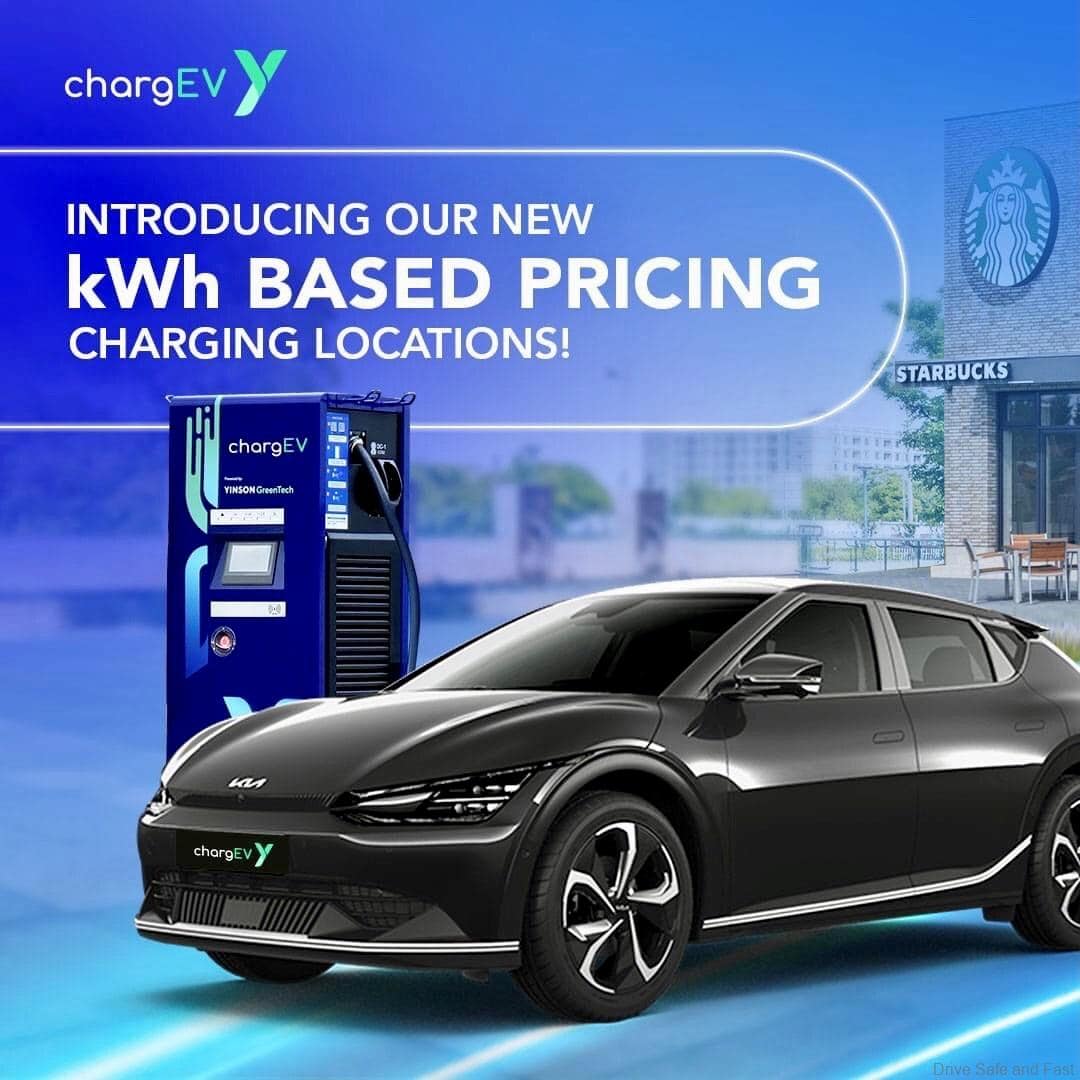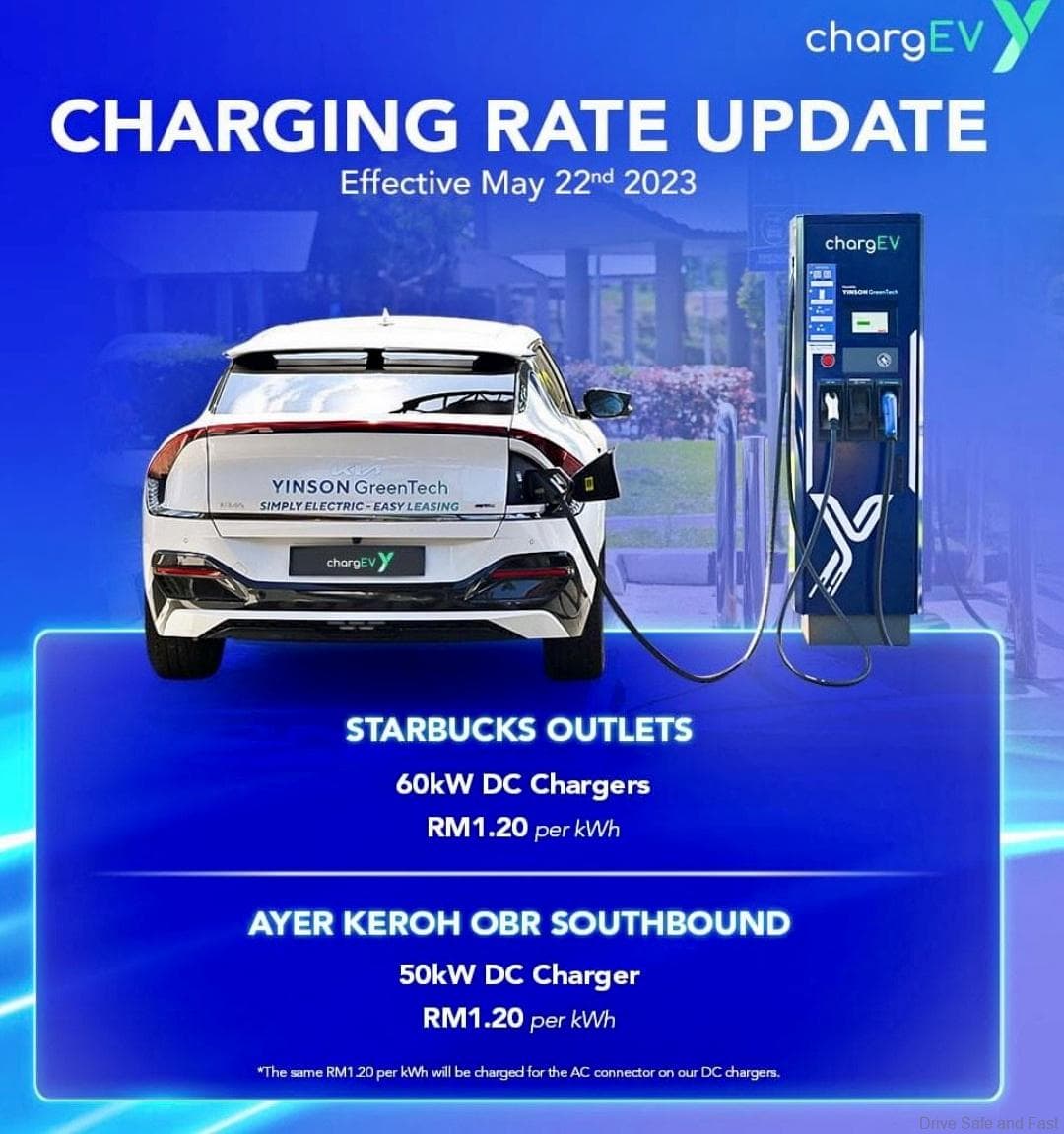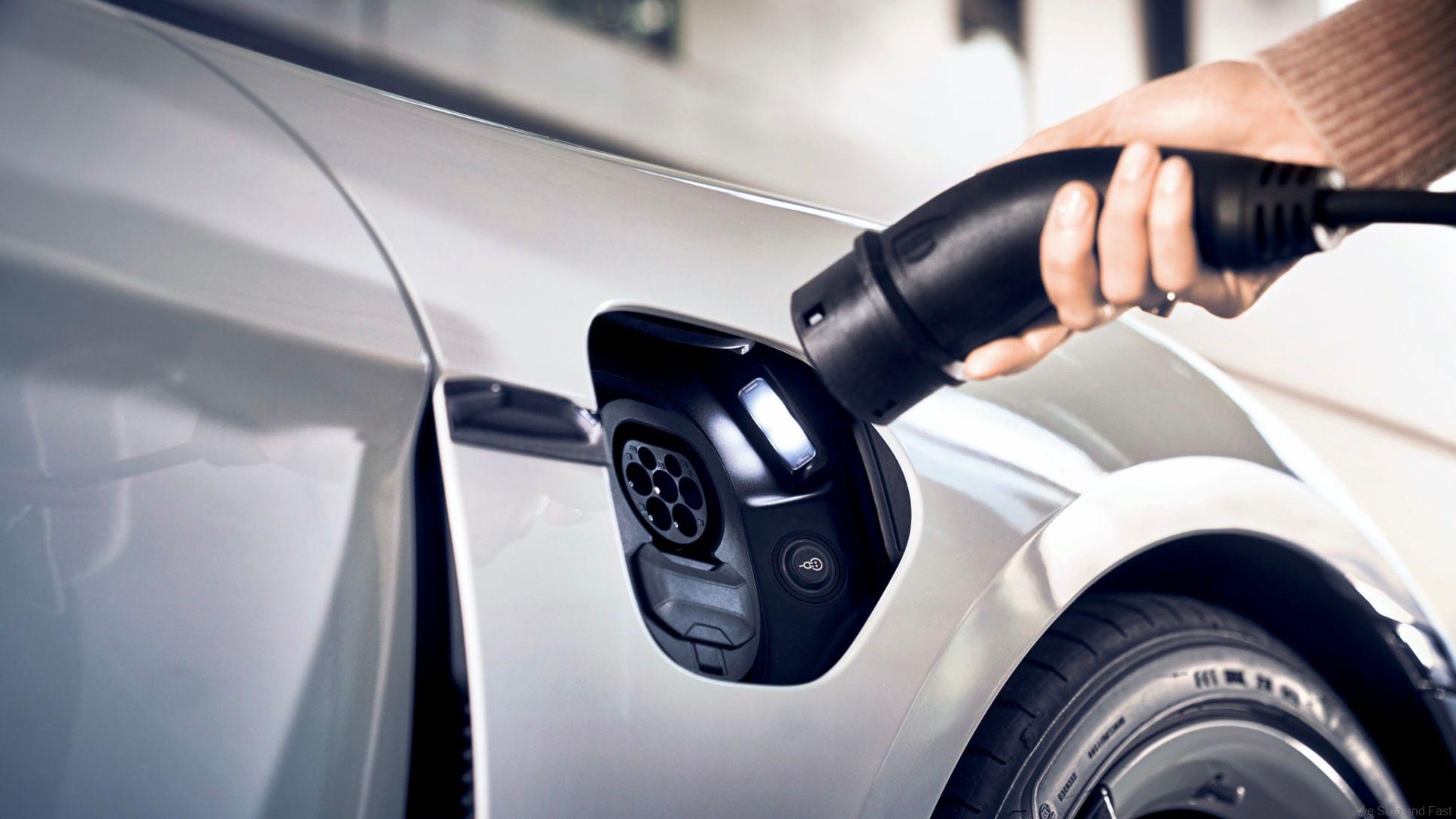This is just the start and it ends with no free EV charging anywhere at all
Okay, so remember when the government was trying to encourage more Malaysians to buy an electric vehicle (EV) by offering discounts or completely not charging taxes? Yea, that was a while ago, huh? Well, more recently establishments like Starbucks offered free EV charging, unlike the former though, this is now coming to an end.

Okay, so now, Starbucks will charge EV owners to charge their vehicles, just like with all other EV chargers in the country and this starts today. Naturally, one would also need to download the ChargEV app on their smartphone to be able to enjoy these services so EV owners, take note.
Moreover, all ChargEV 60kW DC chargers at Starbucks outlets will now begin charging customers RM1.20 per kWh and RM1.20 will also be charged per kWh on the 50kW DC charger for the Ayer Keroh OBR Southbound as well. Looks like there will be no more free charging to be enjoyed while sipping on your RM20 coffee now.

It should also be noted that the same RM1.20 per kWh rate will also be charged for customers using an AC connector on the ChargEV DC chargers. Honestly, for a place that already charges far too much for beverages, one would think at least EV charging would be free, but I suppose we all knew this was coming.
After all, we all knew that the free EV charging would not have lasted forever. In fact, some countries have already announced that EVs will no longer be sold tax free soon and some parts of the U.S.A are already considering charging a flat yearly rate for EVs in what is essentially road tax for internal combustion engine (ICE) cars.

On top of that, this is only the start of it. While the charging rates are only at RM1.20 per kWh right now, it will surely rise bit by bit until eventually, it would cost more to charge an EV than it would to fill up a full tank of petrol in an ICE vehicle. Things like this happen all the time, so it is more than likely to happen very soon.

What do you guys think? Will you miss free EV charging when it eventually gets phased out? Thankfully most Malaysians still have the option of running a petrol car for the foreseeable future but soon, that will no longer be an option too. What happens then?